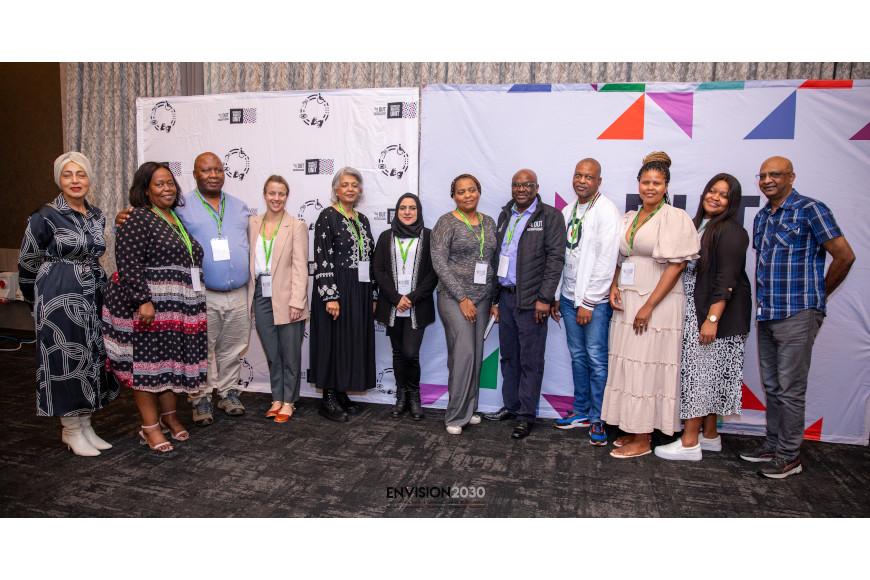The Disability Rights Unit recently held a Disability Equality Training (DET) Workshop at the Coastlands Hotel on the Ridge. The Disability Equality Training (DET) was conducted by the University of KwaZulu-Natal (UKZN) for academics and support staff from the Durban University of Technology (DUT). The purpose of this training was to enhance awareness, knowledge, and skills related to disability inclusivity, and equity. The aim of the training was also about overcoming challenges from admission to graduation at DUT while instilling the university’s living values on the journey.
The programme director was Dr Naseem Haniff, the Director of Student Counselling and Health, who unpacked the importance of the programme.
“The importance of Disability Equality Training for higher learning staff is to create awareness and understanding of disability related issues, promote inclusivity and provide staff with the knowledge and skills necessary to support students with disabilities and colleagues. The key objectives of the DET include promoting awareness and enhancing communication and language, building knowledge on legislation and rights of persons with disabilities, developing inclusive teaching and learning practices, providing support services, promoting cultural change and the breakdown of attitude of our values,” shared Dr Haniff.
Disability Co-Ordinator for UKZN Howard College, Mr Nevil Balakrishna focused his presentation on Disability Equality Training in the context of higher education.
“The fundamental difference between what we are doing and what we were exposed to in the past, is that in the past we were trying to change people. We should not try to change people but rather we must change the environment so that people who have diverse needs would be able to engage, thrive and succeed in it. You do not have to put on a blindfold to know what a blind person feels like, because a blind person experience cannot be explained in five minutes,” explained Mr Balakrishna.
The programme proceeded to a question-and-answer session and allowed for the audience to express their views, which was then followed by Dr Ashley Subbiah who the Disability Co-coordinator at the University of KwaZulu-Natal Edgewood Campus is. Dr Subbiah presented on the Legislative Basis for transformation in higher learning.
Lindokuhle Dlamini, DUT second-year Marketing Management student living with disability shared his challenges as a blind student at his level of study and his expectations of the training.
“During my first year of study, it was hard being a blind student in a class full of students with proper vision. Marketing deals with visuals most of the time so it was difficult for me to learn especially because my lectures did not know how to accommodate me, although they did try to get someone to assist me during exams. I am also playing for the KZN blind cricket team. About this training, I believe there will be positive results since we have guests with different perspectives and input. I hope to get ideas on how I can further my studies as a blind student,” shared Dlamini.
All in all, the Disability Equality Training was a resounding success, effectively enhancing awareness, knowledge, and skills related to disability inclusivity, promoting a more inclusive and supportive educational environment for students with disabilities. Also, the positive outcomes and feedback received from participants served as a testament to the impact of the training.
Pictured: The attendees at the event.
Ayanda Nsele

